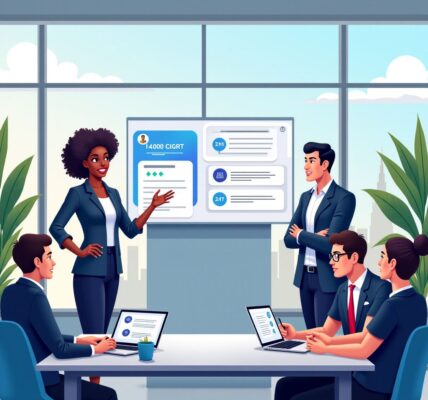Retail has undergone a significant transformation in recent years, driven by challenges such as the COVID-19 pandemic and shifts in consumer behavior. According to recent findings, over 15,500 retail stores closed permanently in 2020, prompting a noteworthy shift in the workforce as the Great Resignation took hold. Currently, a staggering 59% of frontline retail workers have considered leaving their positions within the past year, indicating a critical concern for retailers aiming to both attract and retain talent.
The value of a supportive employee experience cannot be overstated. Employees who feel valued and supported are far more likely to provide exceptional service, which directly impacts customer satisfaction. A recent study revealed that while 87% of retail employees express enjoyment in their jobs, many remain open to exploring opportunities in other sectors. The lesson here is clear: if retailers want to keep their employees happy and engaged, they must first address their core concerns.
Understanding Employee Needs
To build an effective employee experience, it’s crucial to assess and address the challenges that frontline workers face. Many employees are currently grappling with an array of stress factors, including extended hours, negative customer interactions, and heightened obligations. Moreover, personal factors such as rising living costs and unexpected expenses significantly influence their job satisfaction.
The survey conducted by Purchasing Power identified specific areas where improvements could be made: flexible scheduling, enhanced benefits, and financial wellness programs stand out as key factors. In a landscape where over 40% of workers juggle multiple responsibilities and almost half aspire for better control over their schedules, significant changes in workforce management practices are necessary.
Example: Scheduling Solutions
For instance, consider a retail environment during the bustling holiday season. Employees often find themselves overwhelmed as increased foot traffic coincides with their existing responsibilities. The risks associated with operational inefficiency, such as inventory mismanagement and long customer wait times, can put additional strain on employees. To mitigate these effects, retailers should reevaluate their scheduling practices. By offering employees more flexibility and autonomy over their hours, retailers can reduce stress and increase job satisfaction. Aiming for schedules that align with employees’ lives not only fosters loyalty but also enhances the customer experience.
Benefits that Match Modern Realities
Equally important are the benefits offered to employees. The Purchasing Power survey showed that nearly 90% of retail employees value benefits as highly as their salaries. As unplanned expenses can lead to significant stress, benefits need to adapt to modern realities.
Retailers should consider implementing comprehensive financial wellness programs which could encompass financial counseling, medical deductible financing, and employee purchase programs that allow staff to secure major appliances or electronics through manageable payment plans. Such offerings would serve as an effective tool for companies seeking to retain talent. In fact, nearly 39% of employees have indicated that access to an employee purchase program would influence their decision to stay in their current position.
The Human Touch in Retail
It is essential to recognize that as consumers increasingly turn to online shopping, the role of in-store employees remains vital. Customers still gravitate toward personalized, human interactions that cannot be replicated in an online setting. Retailers that invest in their employees will ultimately benefit from a more engaged workforce dedicated to delivering standout customer interactions.
When employees feel supported—whether through financial wellness programs, flexible scheduling, or benefiting benefits—they are much more likely to focus on delivering an exceptional customer experience. A strong internal culture directly translates into customer loyalty and satisfaction.
The Future of Retail
In the competitive retail landscape, it is essential for businesses to foster an environment that prioritizes both employee welfare and customer satisfaction. By proactively addressing the real concerns faced by employees, retailers can cultivate a loyal and committed workforce. As the industry moves forward, those companies that lead with an emphasis on employee experience will stand out as leaders in customer experience as well.
Ultimately, the connection between employee satisfaction and customer experience is clear. When retailers focus on bettering the experiences of their team members, they lay the groundwork for a shopping environment that keeps customers coming back.












